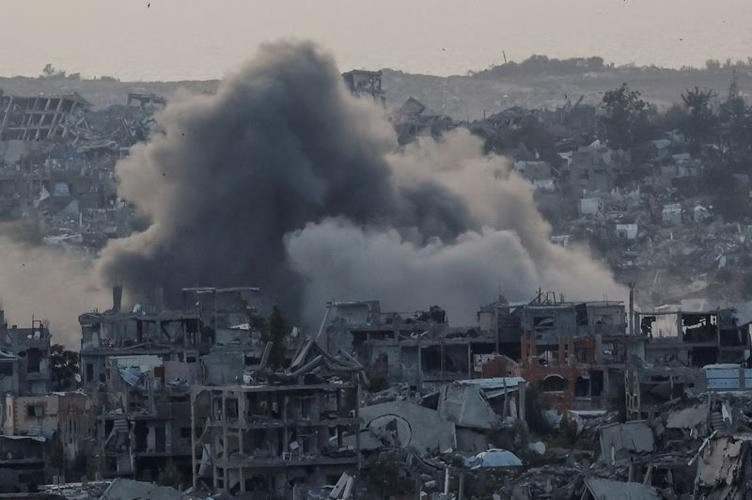
In a single 24-hour period, Israeli airstrikes have resulted in the deaths of at least 146 Palestinians, according to the Gaza Health Ministry. This figure marks one of the deadliest days in the ongoing Israeli offensive, bringing the total number of Palestinian deaths to more than 300 in just the past two days.
The intensified bombardment follows the announcement of a renewed Israeli military campaign dubbed “Operation Gideon’s Chariots,” aimed at dismantling Hamas strongholds and rescuing Israeli hostages held in Gaza.
The renewed operation, launched primarily in northern and central Gaza, has included a massive wave of airstrikes targeting densely populated areas such as Gaza City and Jabalia. Military officials state the goal is to eliminate Hamas leadership and infrastructure, but the air raids have killed scores of civilians, including women and children, raising global alarm.
Northern Gaza is now experiencing a full-blown humanitarian catastrophe. Hospitals, already strained by months of war, are collapsing under the weight of fresh casualties. The Indonesian Hospital, one of the few still functioning in the north, has exceeded its capacity and is operating without sufficient power, water, or medical supplies. Doctors report performing surgeries without anesthesia and treating patients on blood-soaked floors due to the lack of beds.
Israel’s continued blockade of Gaza has prevented critical humanitarian aid from reaching civilians. Food supplies are dwindling, and the destruction of infrastructure has made the distribution of limited aid virtually impossible. International relief agencies, including the UN and the Red Cross, have repeatedly called for the establishment of a humanitarian corridor, but so far, no agreement has been reached.
The global reaction has been swift and pointed. United Nations Secretary-General António Guterres expressed grave concern, warning that Israel’s actions may amount to war crimes or even ethnic cleansing. The UN High Commissioner for Human Rights, Volker Türk, echoed this concern, emphasizing the disproportionate impact on civilians and the destruction of civilian infrastructure.
European governments have also begun to voice strong opposition. Italy’s Foreign Minister, Antonio Tajani, called for an immediate cessation of hostilities, stating that the humanitarian consequences are “unacceptable.” Spain’s Prime Minister, Pedro Sánchez, announced a formal proposal to the United Nations to evaluate Israel’s compliance with international law, particularly regarding access to humanitarian aid.
Despite international condemnation, ceasefire talks remain stalled. Recent negotiations held in Doha have failed to produce a truce. Hamas continues to demand a complete withdrawal of Israeli forces and a permanent ceasefire, while Israel maintains that any agreement must include the release of hostages without preconditions. The lack of progress has allowed hostilities to continue unabated, further endangering the civilian population.
Reports indicate that over 1.9 million people almost the entire population of Gaza have been displaced since the conflict began. Entire neighborhoods have been reduced to rubble. The United Nations warns that unless immediate action is taken, Gaza could face famine, disease outbreaks, and the total collapse of civil society.





